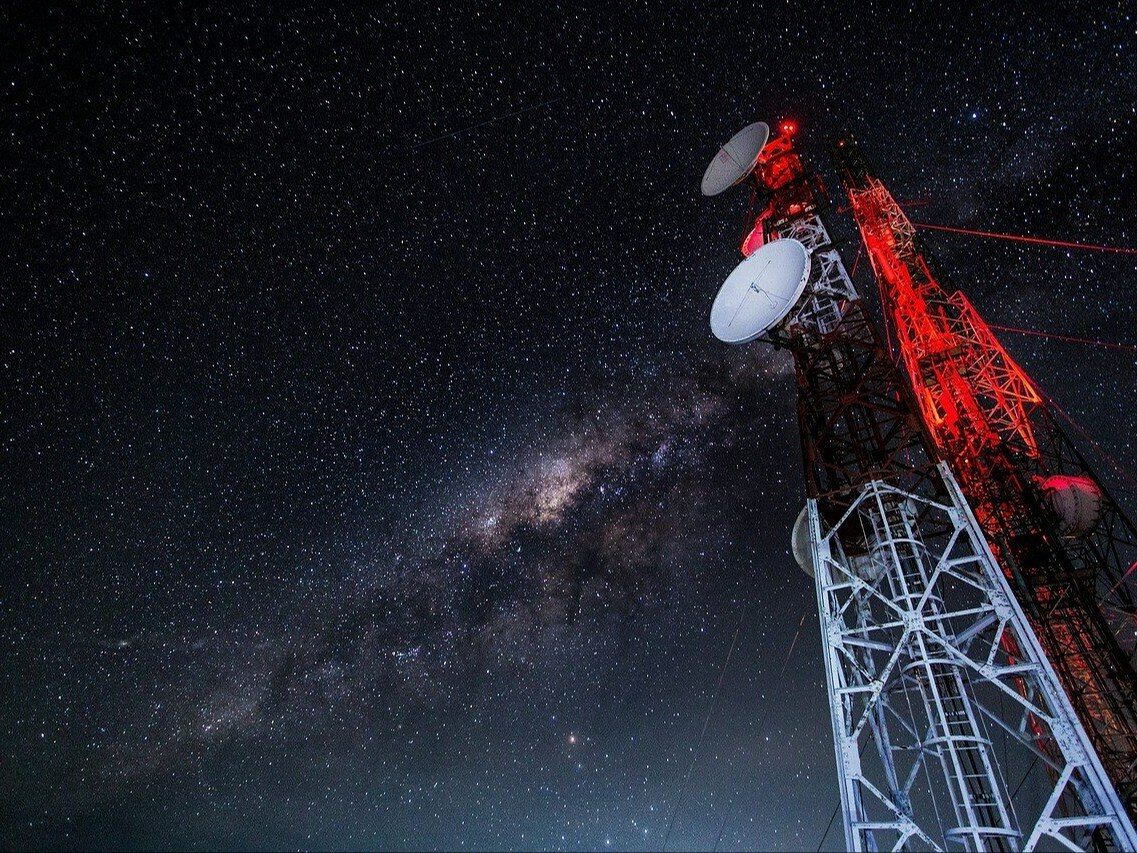Our guys have already been here. Polish space projects that have been commercialized

Polish companies have no intention of standing idly by while American and German companies win contracts in the space industry. We have players who successfully provide technological solutions used in satellites, equip space missions and even place their own satellites in Earth orbit. However, operating in this area requires large investments and access to various technologies. However, this is not an insurmountable obstacle: all you need is the ability to cooperate with other companies and research centers.
Answering journalists’ questions, Dr. Sławosz Uznański, a guest at the September Lublin Science Festival, said that Poland has huge potential to “today actually exist on the space market on a larger scale, build our own technology and then commercialize our Polish technology internationally.” And his words are especially worth listening to, because if everything goes according to plan, the Łódź resident will soon be the second Pole, after Mirosław Hermaszewski, in space. For now, as a candidate for a manned flight to the International Space Station (ISS), he is participating in training and performance tests.
The conquest of space pushes science forward
Thanks to its success, there may be a rapid acceleration of “space technologies” implemented by Polish companies. The Pole will not only perform tasks commissioned by the European Space Agency (ESA) and Axiom Space (a company operating in the space industry), but also test, at the request of the Ministry of Development and Technology, advanced technologies of Polish entrepreneurs, carry out experiments and an educational program addressed to students.
The space sector is an increasingly important global business in which Polish entities can make a presence. If anyone thinks that the space sector consists only of satellites, they are wrong – although it is true that they constitute the largest share of it (approx. 70%). According to data from the Satellite Industry Association, the space industry was worth approximately USD 370 billion in 2020, and in 2040 its value is expected to increase to USD 1 trillion.
Poland is not among the countries that deal the cards in the space industry, but we have great ambitions in this matter.
– Several areas of the space sector are dynamically developing in Poland, related to software, data processing, Earth observation, electronics, mechanisms and space security. In these areas, Polish entities already have significant competences that fit into the global development trends of the space industry – said Paweł Wojtkiewicz, president of the Association of Space Sector Employers, in an interview with WNP.PL. This organization brings together enterprises and scientific and research institutes operating in the space industry.
The space industry in Poland – how is it organized?
The space industry in Poland operates as part of the national space program, the main assumptions of which were created in 2017. As part of its activities, the Polish Space Agency (POLSA) implements 4 priorities:
-
priority I – building the ability to construct and launch space objects
-
priority II – construction of an Earth observation satellite system
-
priority III – construction of a national satellite information system
-
priority IV – expansion of the national space security system.
POLSA data shows that over the last decade – as part of the contracts of Polish companies from the space industry with European partners – it was possible to obtain financing in the amount of EUR 140 million. Polish scientists from the space industry then gained access to European projects, such as those implemented as part of the mission, among others. Cassini-Huygens, Rossetta, Bepicolombo, Solar Orbiter.
In recent years, Poland has paid a contribution worth approximately EUR 40 million to the European Space Agency (ESA). However, on August 29, 2023, the Minister of Development and Technology Waldemar Buda signed agreements with the head of the European Space Agency to increase the Polish contribution.
This gives us the right to participate in programs related to Earth observation, satellite navigation, telecommunications and applications, space exploration, space information system and the program for the construction of scientific instruments. Entry into ESA gave Polish companies and research centers the opportunity to intensively develop space technologies and satellite techniques through the possibility of full participation in various programs.
Before a scientific or exploration mission sets off, dozens of scientists work on technological solutions that make exploration cheaper, safer, and at the same time enable testing of new solutions. In Poland, the Space Research Center of the Polish Academy of Sciences is the leader in the field of space research, but companies with private capital also deal with this topic.
Creotech Instruments debuted on the WSE in 2022
One of them is Creotech Instruments, a manufacturer of satellite platforms, systems and components, listed on the Warsaw Stock Exchange (in 2022, it debuted as the first company from the space industry). Since 2013, the company has been cooperating with the European Space Agency. One of her projects was to produce components for the ASIM experiment, which is currently operating on the International Space Station. Creotech Instruments designed and built subsystems for the PROBA-3 space mission for ESA.
As part of the contract concluded in 2015, the company designed and assembled fragments of electronic systems for the needs of a space mission, the aim of which was to supplement knowledge about the outer layers of the Sun’s atmosphere. PROBA-3 consists of two interacting spacecraft. The first one is equipped with a camera and a telescope for observing the solar corona, while the second one is designed to maneuver around the first one in such a way as to cover the disk of the Sun when a photo of the corona is taken.
– For Creotech Instruments, participation in the PROBA-3 mission is another milestone in its development – said Dr. Grzegorz Brona, President of the Management Board in 2015 – So far, we have successfully completed the tasks of assembling electronics for space missions. Now, for the first time, the company participates on such a wide scale in the design of space electronics. This is a great step forward, which brings us much closer to our strategic goal of acquiring competences sufficient to integrate Polish satellites weighing up to 150 kilograms.
These types of projects take time to complete. Proof of this is the fact that the technology is still being tested, and if everything goes well, the satellites for the PROBA-3 mission will be launched in 2024.
At the turn of 2023/2024, the company plans to launch the first observation satellite based on the proprietary HyperSat platform. Its goal is to enable the company to become a leading supplier of microsatellite technologies in the European Union in defense and commercial projects in the coming years.
The company is also working on placing the EagleEye observation microsatellite into Earth orbit. It is intended to provide high-resolution images of the Earth. The entity co-responsible for this project will be the German company Exolaunch, which provides services for Elon Musk’s SpaceX. The EagleEye project was recognized in September as part of the 30th International Defense Industry Exhibition.
Astronika fired two mechanisms towards Jupiter
Another company, that operates in the space sector is Astronika, which celebrates its 10th anniversary this year. It was founded by a group of engineers from the Space Research Center of the Polish Academy of Sciences. In May 2023, Astronika delivered two of the six mechanisms that were to be deployed in space on board the JUICE probe launched by the European Space Agency.
The aim of the JUICE space mission is to study Jupiter and its moons. The probe was launched on April 14 this year. It will reach Jupiter in 2031. However, you don’t have to wait that long to find out whether the mechanisms worked properly: at this stage, everything went according to plan.
The mechanisms were the result of cooperation between several Polish institutes and companies that, commissioned by Astronika, developed new technologies or performed specialized tests. In particular, the Warsaw University of Technology prepared specialized coatings and surface treatments. Koszalin University of Technology made specialized DLC coatings for RWI (Radio Wave Instrument) antenna tubes. The Institute of Electron Technology sputtered resistive layers onto the ceramic resistor of the Langmuir probe. The Institute of Aviation conducted vibration tests of the RWI antenna.
This shows that the space business is a team game: to achieve success, you need to spend a lot of money and have extensive technological resources. Fortunately, those who do not have them are not excluded from participating in this race – as long as they can find partners. In this case, it worked perfectly.
– Every successful space mission is the result of many years of cooperation between dozens of entities, hundreds of scientists, engineers and managers. It was the same this time. As a result of our work, several new technologies and a patent were created. The invention and provision of appropriate components required close, long-term cooperation of a number of Polish subcontractors, said Łukasz Wiśniewski from Astronika.
SatRevolution appreciated by NASA
SatRevolution was established in 2016 to develop a real-time Earth observation constellation. The company was the first in Poland to place its satellites (Światowid and KRAKsat, both in 2019, and AMICal Sat in 2020) in Earth orbit. Although the company has a short history, it has been noticed by NASA: in the “State of the Art Small Spacecraft Technology” report, the Agency lists SatRevolution as one of only 12 companies in the world comprehensively involved in the design, production and placement of observation nanosatellites collecting optical data in orbit around the Earth. .
In May 2022, a letter of intent on cooperation was signed regarding the construction of the first nanosatellite factory in Poland. The agreement on this matter was concluded by representatives of the Wrocław-based company SatRevolution and the Legnica Special Economic Zone. This is necessary for the company to develop,
– By 2026, we plan to create a constellation consisting of a thousand satellites. For this goal to be fulfilled, we need space for development and I believe that we have found such space in the Legnica Special Economic Zone. The signed letter of cooperation is another step in the development of both the company and the Polish space sector, said Grzegorz Zwoliński, president of SatRevolution.
Wrocław uses the company’s services. It was the first city in the world to use space technology to tighten the local tax system: detailed analyzes of satellite images are used to control entities obliged to pay real estate tax.






